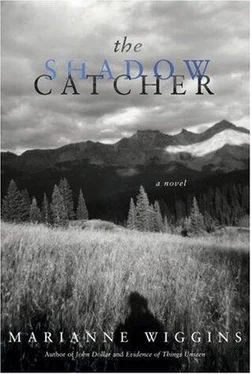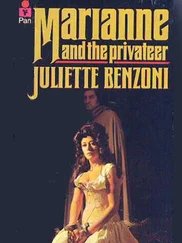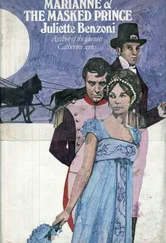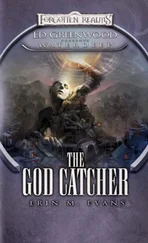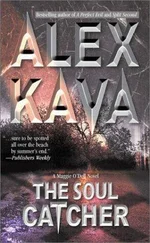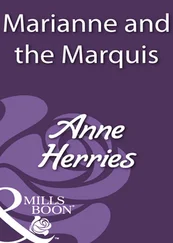“—perhaps Mr. Rothi would like to show you his accounting, Edward,” she said, but he waved her off.
“One hundred and fifty,” Rothi said. “For half share of the business.”
“I’ll give you a hundred.”
“And I’ll give you the door.”
Clara watched the two men stand off with each other.
She wondered how Edward had acquired so much money, or if he even had it, but noted that nothing in his posturing before the older man suggested otherwise.
“I’ll work the difference off — work without a share in profits until the balance’s paid,” Edward offered.
“One hundred and fifty. Cash in hand. That’s my final,” Rothi told him.
Edward tendered their farewell and turned and left and Clara followed and once outside he grasped her wrists and said, “This is what I want —I could learn so much from him! What a tough old character, a man like him could teach me all I’d need to know about how to operate a business—”
“Edward,” Clara had to ask: “Do you have a hundred dollars?”
“—why, of course. Salary from all those years, odd jobs, and from the sawmill. I can raise the extra fifty, I suppose — I could sell the homestead, Father paid three dollars an acre for it — fifteen acres — plus, now, there’s the house and barn…”
“—but, Edward, if you do that…where would your mother and sister live?”
“—here. Seattle. They could live with us .”
Clara held her breath.
“—but, dear ,” she argued: “Where would that be?”
“—we’ll find the rooms to rent…”
“—rooms for six ? The city’s overrun with boarders from the fire. How would they pay? Where would the rent come from?”
“Asahel has work. Asahel has money saved. I could borrow—”
“Do you really want this, Edward?”
“So much, Scout. So very, very much…”
“—then here .” She reached into her bodice for the money she had left from Lodz.
Edward looked at the money then took it without speaking, nursing it from her fingers without touching her, though his eyes spoke an emotion she interpreted as ratified devotion.
She waited outside the building, watching the sun slide above the rooflines, pushing the shadows to one side of the street, while Edward went inside to deal with Mr. Rothi. She could hear a church bell clanging on the hill above her and detect a buttery aroma from the bakery nearby and she began to reinhabit the delights of city living, that sense of feeling others close at hand who share one’s cultural language and experience. She watched a carriage arrest at the corner where a well-turned-out gentleman descended, top hat and cane, and helped a lady in a fashionable dress dismount onto the pavement, as he took her arm and nuzzled his head close to hers before they sauntered, slowly, out of sight. I will have this life again , Clara thought. She felt her heart quicken — with a surge of pride she thought, I have paid to have this life again . She smiled, and told herself: with Edward .
He emerged from Rothi’s shop, his face more radiant than she had ever seen, and announced, “It’s done.” He took her arm and backed her up into the middle of the mews facing the building and swept his hand across its bland façade. “‘Rothi and Curtis ,’” he pronounced. “‘Photographers.’ Thank you , Scout.”
She felt that she might cry from joy.
“Now let’s go see about these wedding rings,” he said and started toward the jeweler on the corner at the trot she was learning was his natural speed.
“Where did you get this, sir?” the jeweler, assaying the gold nugget, asked from behind his loupe.
“Why do you want to know?”
“I already know,” the jeweler said. He assessed Edward and Clara more carefully. “I want to know if you know.”
Edward held his gaze without answering.
It had been forty years since gold was found at Sutter’s Mill but superstitions and suspicions still swirled around the protocols of discovery, as if the gold, itself, were the product of alchemy, not nature, and it was un natural to give away details of its provenance because of the vestigial fear of being claim-jumped.
“I would wager California on the Nevada line,” the jeweler said. “There are traces of BORON in the fasciae.”
Edward didn’t blink. “Are you saying that the nugget isn’t pure?”
“It is very pure. Outstanding carat. And for that very reason I am loath to melt it down. But I will tell you what I think it’s worth and you can use the trade to purchase rings from my selection of hand-crafted wedding bands.”
Clara watched him write a figure on a piece of paper and pass it to Edward — she saw Edward’s color rise — then the jeweler passed a wooden tray to them, lined in purple velvet and gold wedding bands.
“What will you do with the nugget?” Edward asked.
“I will preserve it. Make a tie pin of it. Very elegant.”
Sir , Edward said and reached to stay the jeweler’s hand.
Edward explained who he was and that he had just entered into an agreement with Mr. Rothi, the jeweler’s neighbor, and that he and the jeweler were going to be commercial residents on the same street and that if the jeweler would consider holding the nugget as surety against the cost of the two wedding bands Edward would like to reserve the right to come back in three months’ time and pay him for the two rings as well as paying for the jeweler’s craftsmanship to convert the nugget to a tie pin.
Clara watched without a word — watched Edward wield persuasion as an enticing snare of conversation, charming the jeweler with that same unyielding focus that could sometimes distance but that never failed to win her over.
They chose two beveled bands, identical except for size, Clara feeling, again, that she would weep, when she tried hers on.
“And what sentiment would you like engraved inside?” the jeweler asked.
Edward shook his head, explaining, “None…we need to take them with us, right away.”
“I can do it while you wait,” the jeweler offered, and Edward’s face went blank.
“I would like,” Clara piped up: “I would like, inside of mine, the single word— Edward .”
“—and you?” the jeweler asked, turning to Edward.
Edward held the ring and stared at it then looked at Clara, seeking her permission.
“ Scout ,” she told the jeweler: “Etch in the word ‘Scout.’”
They waited while the jeweler took the rings to his engraving desk beneath a window, Clara passing the time by looking at the jewelry in the cases — filigreed necklaces and ladies’ watch fobs, earrings strung with freshwater pearls, pink and green with iridescence.
“—let me know if something takes your fancy,” the jeweler told her and she blushed, feeling she should turn away for lack of justification, from such opulence.
Meanwhile Edward surveyed the shop, judging the way it was assembled, how the inventory was presented to the public. He particularly took notice of the nearly empty walls — the lithographs hung as meager decoration to make the customer feel at ease among the products.
“I see you are a ‘connoisseur’ of Mt. Rainier,” he told the jeweler, pointing to the framed art.
Clara kept her head down to suppress a smile. Connoisseur . She had taught him the word. His pronunciation was a perfect duplicate of hers.
“It is my own ‘mountain of mountains,’” he added conversationally. “Perhaps I can interest you in purchasing my photographs of it to enliven your emporium.”
Читать дальше
